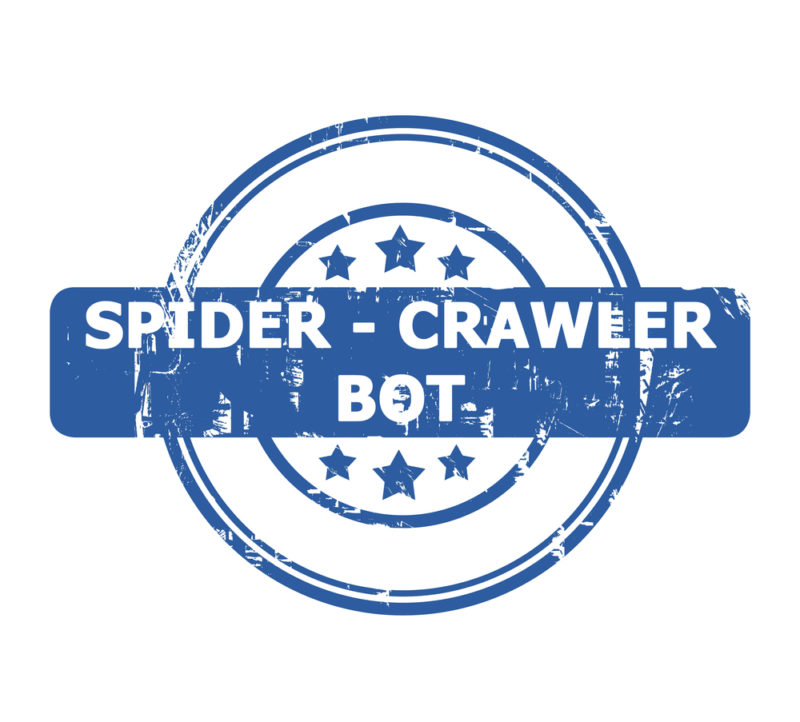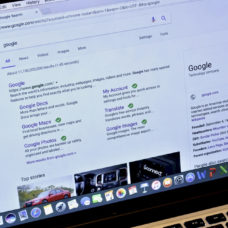Are you wondering how Google algorithm works?
If you regularly consult the search engine for information, then you’ve probably stumbled across mentions of Google algorithm. It’s like an invisible force that decides which page appears on the search engine page and which does not.
But have you ever considered how it works?
Before we delve into the details of what Google algorithm is and its effect on the pages you see, first, you must understand what an algorithm is.
Think of it as a set of rules – a mathematical formula, if you will – created to solve a problem in a finite number of steps. In computers, an algorithm sets the stage for performing specific tasks.
For example, you can program a computer to select a number between 1 and 1,000 randomly. Since the task has a beginning and an end, it is finite.
While this is a simplistic idea of what an algorithm is, it’ll help you understand the more complex versions.
Now for the question you’re dying to ask:
What is the Google Algorithm?

Google algorithm follows the same logic as what we’ve described above. It’s the formula that Google uses to rank the webpages in response to a user’s query.
But, it’s way more complicated and also changes very frequently.
Alongside the PageRank system, Google uses tons of other criteria to deliver the most relevant results to its user. It also included rules to prevent people from cheating the system.
For example, a rule in the algorithm ranked pages higher based on how often a specific keyword appeared in a post. SEO specialists noticed this and started embedding multiple occurrences of a keyword in their page to make it rank higher on the SERP.
So, instead of providing an excellent experience for readers, they created content for the search engine crawler.
Google noticed this and changed the rules. “Keyword Stuffing,” as it is known, now reduces a page’s chance of ranking on the search engine.
Over the years, the search engine’s algorithm has evolved to deliver the best experience to users. Some of the many Google algorithm updates include Caffeine, Panda, Penguin, and Hummingbird.
Here is a break down of how the Google algorithm works.
How Google Algorithm Works: From the Query Box to the Result Page
Google Crawlers
After typing a query into the search engine, Google crawls the web using a code called “Spider.” The Spider crawls across the web using HTML links.
During this process, it records the useful pages and dumps duplicates and low-value content. When the Spider encounters a new domain, it looks for a specific page:
In this instance, particular instructions – such as the location of your sitemap and content to index – left by website owners on this page would determine how the crawler acts.

Indexing
In the simplest term, Indexing is the process which Google uses to add webpages to its search engine.
When you leave instructions for the crawler to index your page, Google adds it to the web search index. That means, with the right keyword, your content could appear on the SERP.
But there’s more.
While Indexing does indeed add your page to the search engine, it does not determine how high up you’ll appear. This is determined by other factors such as:
- Keyword occurrence in the domain name
- The number of quality backlinks you have
- Internal Linking
- Using an XML sitemap
- Using non-competitive meta tags, etc.
That’s where the ranking algorithm comes into play.
Ranking Algorithms

The ranking algorithm determines the order in which Google displays the results. It involves using a set of weighted metrics to decide the best result for a specific query.
While the major on-page and off-page metrics used in the ranking algorithm is not a secret, understanding the correlation between them can be tricky.
For example, what happens when you type the words “Apple pie recipe” into the query box?
Tons of metrics come into play. However, the page that ultimately appears at the top is determined by four factors.
- Relevance: The search engine selects the page that’s most relevant to Apple Pie Recipe. This is often determined by a blend of on-page and off-page factors.
- Domain Authority: It’s a search engine ranking score created by Moz to predict how well a website ranks on SERP. Sites with high DA usually rank higher.
- Trust: This is an anti-spam algorithm designed to prevent manipulation of search results.
- Usability: The content must offer the best experience to readers. That means faster load time, low ads, readable materials, etc.
The content that’ll pop up at the top of the SERP for this query are usually the ones that have scored higher on the metrics mentioned above.
Now that you know how the Google algorithm works, what are the best practices to get easily indexed?
Getting Google to Index Your Website

With what you’ve learned so far, you should know the best practices to get your page indexed by the search engine. Here is a summary.
Use Fetch as Google
Google Search Console has a feature which allows web administrator to input their URL for Google to “Fetch.” After submitting the URL on the console, click the “Submit to Index” for Google crawler to visit and index your page.
If your page is indexable, the search engine should pick it up within a couple of hours.
Use Internal Links
As said earlier, Google crawler jumps from one page to another using HTML links. That means you must use relevant internal links for Google to index your page.
Here’s one thing you should consider.
Link the most authoritative page on your site to a page that you want to be indexed. Not only does this push the equity to other pages, but it also creates a content grouping. That way, the search engine can quickly identify your content.
With this in mind, linking unrelated pages together is never a good idea.
Remove Low-Quality Pages from Google Index
Content is the cornerstone of high authority websites. However, low-quality pages are like dead weight; they’ll decrease the number of times Google crawls, indexes, and ranks your site.
So, it’s time to do some pruning.
Example of pages that should be removed from Google index is Deleted (404) and 301 Redirected pages. Also, remove the “Thank You” pages and duplicate contents.
You can either do leave the instruction in your robot.txt file or use a nofollow or noindex link.
Include the Page In Your Sitemap
A sitemap is a guide that helps the search engine find the essential pages. While having a page on a sitemap does not guarantee indexation, not including necessary pages will undoubtedly decrease your chances.
It’s incredibly easy to set up and submit a sitemap, especially when your site is running on WordPress. Several plugins can help with that.
Just don’t include the pages that you don’t want the search engine to index.
Yes to Social Sharing
Sharing your content across social media and forums is always a good idea. It exposes your content to a new audience and brings more traffic to your site.
Also, it puts a link back to your site, which encourages Google to crawl back and index your site. While its influence in the organic ranking is still up for debate, social sharing’s effect on indexation is not.
Secure External Links
It’s the same logic as social sharing. Google’s crawler moves through HTML links. That means the more websites that link back your page, the higher your chance of getting indexed.
So, write guest posts on relevant authoritative sites and send advertising request to media sites. Aside from getting your page indexed, it could also improve your rank on SERP.



















Comments (0)
Most Recent